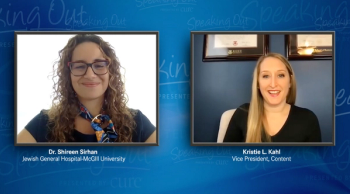
On behalf of the Canadian MPN Research Foundation, CURE spoke with Dr. Shireen Sirhan, from the Jewish General Hospital-McGIll University, about finding a care team that specializes in MPNs.

On behalf of the Canadian MPN Research Foundation, CURE spoke with Dr. Shireen Sirhan, from the Jewish General Hospital-McGIll University, about finding a care team that specializes in MPNs.
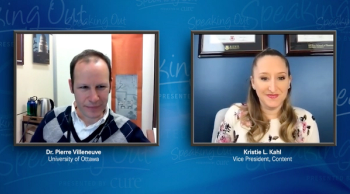
On behalf of the Canadian MPN Research Foundation, CURE spoke with Dr. Pierre Villeneuve, from the University of Ottawa, about the role of caregivers after an MPN diagnosis.
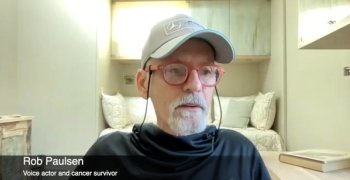
After realizing that alcohol and spicy foods were excruciating to consume after treatment, throat cancer survivor Rob Paulsen learned that smoothies were a much healthier — and more soothing — option.
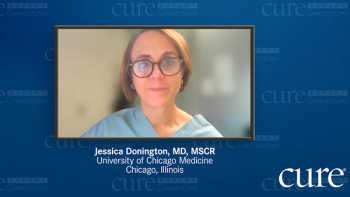
Two experts explain how early-stage non-small cell lung cancer treatment has changed in recent years, particularly in the adjuvant setting, and offer future perspectives in this space.
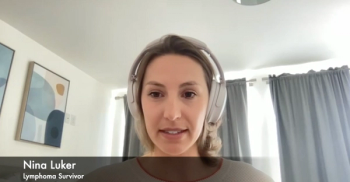
“Coping for me has been routine-based, and that is making sure I do the things that are in my day that are really foundationally making me feel joyful,” says a survivor of an advanced-stage cancer on how to cope with “scanxiety.”
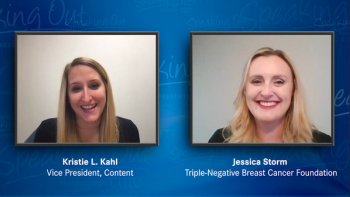
As part of its CURE Speaking Out video series, CURE spoke with Jessica Storm, a patient with metastatic triple-negative breast cancer, about learning of her diagnosis and her advice for others based on her experience.
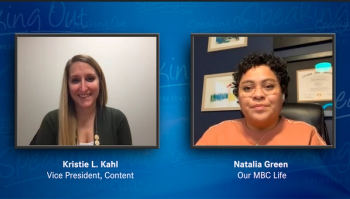
As part of its CURE Speaking Out video series, CURE spoke with Natalia Green, senior producer and co-host of Our MBC Life, about the importance of patient-physician communication and its impact on treatment decision-making.
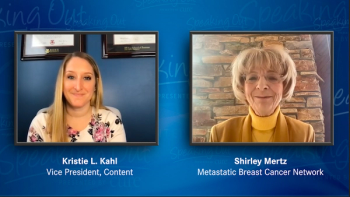
As part of its CURE Speaking Out video series, CURE spoke with Shirley Mertz, president of the Metastatic Breast Cancer Network, about finding support after a metastatic breast cancer diagnosis.
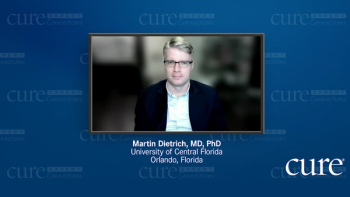
Dr. Jessica Donington provides an overview of key ongoing clinical trials of systemic adjuvant therapy in early non-small cell lung cancer.

An expert surgeon explains the role patients have in adjuvant therapy selection for early non-small cell lung cancer.

Dr. Martin Dietrich reviews some factors to consider when selecting an adjuvant therapy for early non-small cell lung cancer.

Jessica Donington, MD, MSCR, describes how she discusses adjuvant therapy with patients diagnosed with early non-small cell lung cancer.

An expert oncologist details the design, outcomes, and clinical implications of the IMpower010 trial.

Dr. Jessica Donington explains how the results of the ADAURA trial changed the treatment algorithm in the adjuvant setting in early non-small cell lung cancer.

Lorelei Colbert was diagnosed with triple-negative breast cancer at 28 and used her experience to launch the “Chemo to Kindness” challenge that inspired others around the world to do acts of good.

Martin Dietrich, MD, PhD, describes the toxicity profiles of chemotherapy agents used in the adjuvant setting in early non-small cell lung cancer.

Two experts detail the use of adjuvant therapy, including chemotherapy, in treating early non-small cell lung cancer.
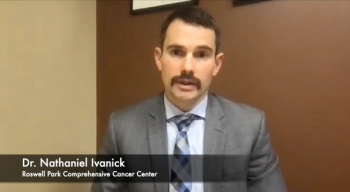
While robotic navigational bronchoscopy is an exciting advancement in diagnosing and staging lung cancer, the procedure does come with some risks and factors to consider, explained one expert.
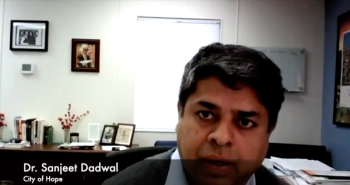
An infectious disease expert explains the new and upcoming treatment modalities that are improving COVID-19 outcomes for patients with cancer and other conditions that compromise the immune system.
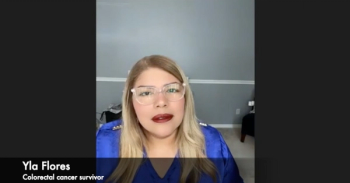
After not knowing quite what to expect from her first chemotherapy treatment, colorectal cancer survivor Yla Flores describes the pain she felt in her heart after seeing other patients in worse conditions.

Dr. Martin Dietrich explains the role of molecular testing in early non-small cell lung cancer.

Martin Dietrich, MD, PhD, and Jessica Donington, MD, MSCR, provide an overview on early non-small cell lung cancer and the available treatment options.
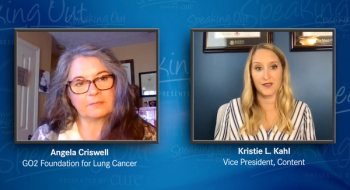
Angela Criswell, director of quality screening and program initiatives at GO2 Foundation for Lung Cancer, discusses early detection and screening for lung cancer.
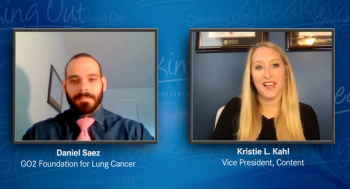
Daniel Saez, treatment and trials navigator at the GO2 Foundation for Lung Cancer, discusses biomarker testing and precision medicine in lung cancer.

Susan Smedley, national manager of community fundraising and endurance events at GO2 Foundation for Lung Cancer, offers resources for patients with lung cancer and their loved ones, as well as ways to get involved in the community.

Susan Smedley, national manager of community fundraising and endurance events at GO2 Foundation for Lung Cancer, discusses quality of life in lung cancer, and ways patients can communicate preferences to their health care providers.
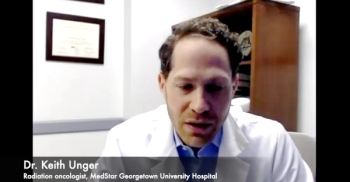
Communication, self-advocacy and having someone in your corner are all critical tools to bring to a cancer care visit, says an expert from MedStar Georgetown University Hospital.
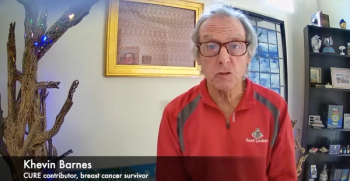
One male breast cancer survivor explains why he considers his cancer experience an “adventure into the unknown,” where he draws inspiration from every survivor he meets.

As part of its Speaking Out video series, CURE spoke with Dr. Rebecca Moroose, from Orlando Health Cancer Institute, and Dr. Virginia G. Kaklamani, from UT Health San Antonio, about the National Comprehensive Cancer Network guidelines and what they mean for patients.
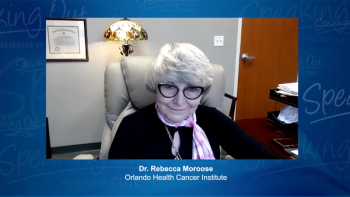
As part of its CURE Speaking Out video series, CURE spoke with Dr. Rebecca Moroose, from Orlando Health Cancer Institute, and Dr. Virginia G. Kaklamani, from UT Health San Antonio, about shared-decision making with the NCCN Guidelines on metastatic triple-negative breast cancer.